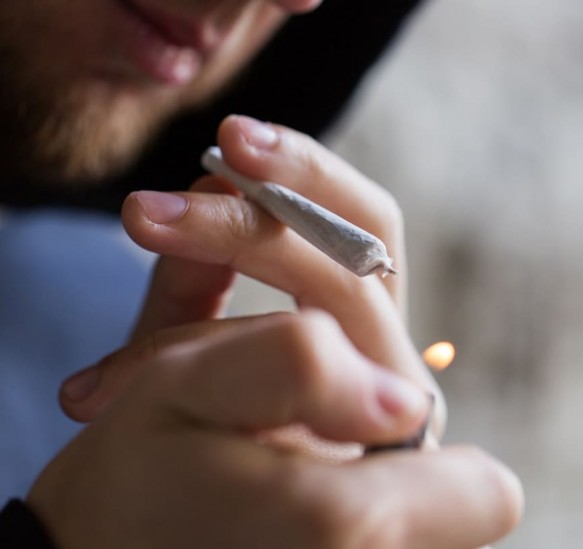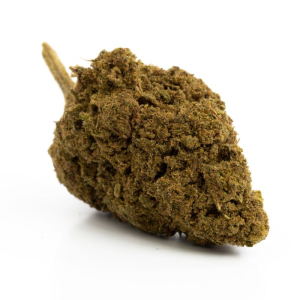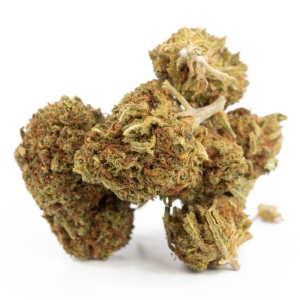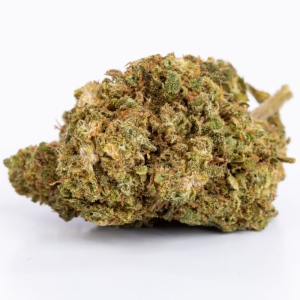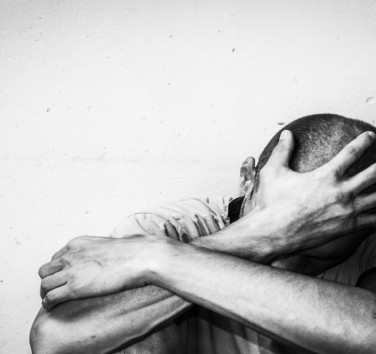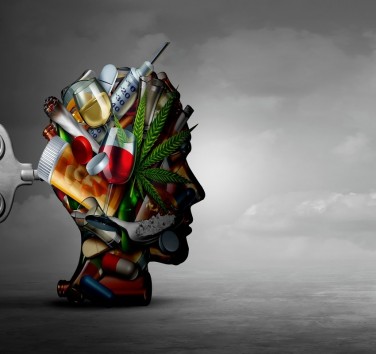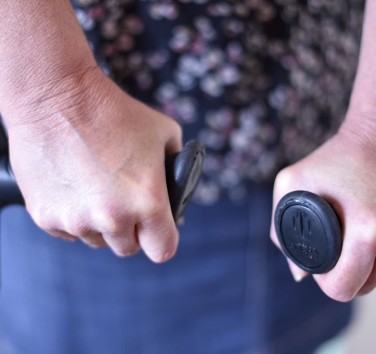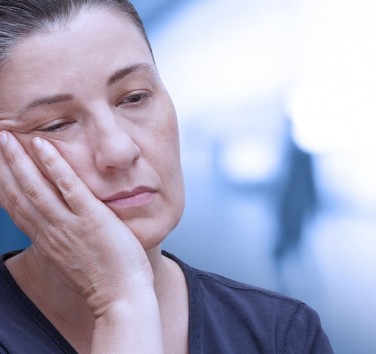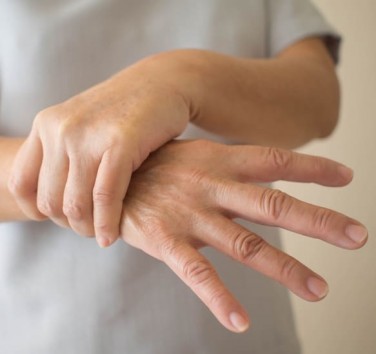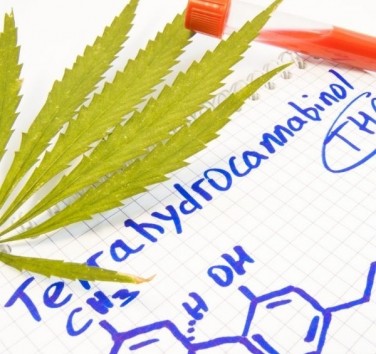Sommaire
- Symptoms of cannabis addiction
- What is cannabis withdrawal?
- Cannabis withdrawal: the benefits
- Effective methods for weaning yourself from cannabis
- Using CBD to wean yourself off THC
- How long does cannabis withdrawal last?
- The stages of cannabis withdrawal
- Support and resources available for cannabis withdrawal
As research advances, new weaning methods are emerging over the years. Discoveries of techniques and products supporting cannabis (THC) withdrawal are increasing and helping millions of people get rid of their cannabis addiction. Cannabidiol or CBD oil is the most concrete example.
Millions of people use CBD, a cannabinoid present in cannabis but having no psychotropic effect, to wean themselves off cannabis and regain control of their lives. This phenomenon prompted scientists to do research to confirm the effectiveness of CBD oil in cannabis (THC) withdrawal and their results were conclusive.
If you are addicted to cannabis and want to quit smoking, you have come to the right place. Let's take a detailed look at the symptoms that should alert you to your consumption, what exactly cannabis withdrawal is, the conditions that promote the success of your withdrawal and how CBD can play a crucial role in your transition.
Symptoms of cannabis addiction
Before deciding to wean yourself, you need to know how to detect dependence. There are many symptoms that can reveal your cannabis addiction:
-
You lose control of your consumption: this means that you have to use more and more cannabis to feel the same effects
-
You have already made several unsuccessful shutdown attempts
You have unpleasant physical and psychological symptoms when cannabis use is stopped or reduced, such as problems sleeping, irritability, anxiety, headaches, headache and nausea -
Your consumption compromises other aspects of your life (your relationship, your friendships, your professional life, etc.)
-
You are aware of your addiction and the danger, but continue using it anyway
-
You spend time obtaining cannabis: which can disrupt daily obligations
-
You have heart palpitations, food cravings, dry mouth, memory loss, red eyes and you have bad trips, anxiety, a feeling of suffocation or nausea
-
You have mood swings, you are irritable, agitated and aggressive
-
The idea of going a few days without smoking makes you nervous
-
You have a significant loss of appetite or weight
This list is not exhaustive. To detect whether you actually have a cannabis dependence problem, it is best to consult a health professional. This can be your GP or, initially, an online advice service such as that of Drogues info service or Ecoute Cannabis en France.
What is cannabis withdrawal?
Before embarking on cannabis withdrawal, let's define withdrawal and the stages that constitute it.
Cannabis withdrawal is the period during which a person dependent on cannabis deprives themselves of consuming it sustainably. During the cannabis withdrawal period, withdrawal symptoms appear.
Stopping cannabis consumption can in fact lead to cannabis withdrawal syndrome in a dependent individual. The intensity of symptoms varies from person to person. Withdrawal symptoms are physical and psychological in nature.
During the cannabis withdrawal period, here are the symptoms that may appear (non-exhaustive list):
- Anxiety
- Emotional fluctuations
- Sleep disturbance
- Stomach aches
- Irritability
- Loss of appetite
- Hot flashes
Withdrawal symptoms can last between 1 and 6 weeks. As for the total duration of cannabis withdrawal, it depends from person to person but generally lasts several months. At the end of the withdrawal period, the person who has used it no longer feels the urge to smoke at all and is completely detached from cannabis consumption.
Before telling you about the methods, let's look at the benefits together.
Cannabis withdrawal: the benefits
There are so many benefits, but here are the 5 most important:
-
Improved memory and concentration
When you regularly consume cannabis, THC can alter the function of cannabinoid receptors, affecting memory and concentration. Specifically, it can cause short-term memory problems, such as difficulty remembering things that happened recently, and difficulty concentrating on a task for an extended period of time.
After a period of withdrawal, THC levels in the brain decrease, allowing cannabinoid receptors to regenerate and resume normal function.
It may help restore cognitive function, including memory and concentration. However, it is important to note that recovery of cognitive function can take time and vary from person to person depending on different factors such as duration and amount of cannabis use.< /p>
-
Reduction of symptoms of anxiety and depression:
Although some people use cannabis to treat symptoms of anxiety and depression, long-term use can actually make these problems worse. Withdrawal can help reduce these symptoms.
People going through withdrawal can also learn to identify and to manage their emotions in a more healthy and productive way, without resorting to substances. This may include activities such as therapy, meditation, exercise, adequate sleep, and a healthy diet. We'll talk about it a little later in the article.
-
Better sleep:
Regular cannabis use can disrupt sleep by altering sleep cycles and affecting sleep quality. Cannabis may reduce the amount of REM sleep, which is an important phase of sleep that promotes physical and mental recovery.
People who use cannabis regularly may also have difficulty falling asleep without the substance, but by weaning they can learn to relax and help them fall asleep naturally.
Cannabis withdrawal can help reduce problems with daytime sleepiness, which can be a side effect of regular cannabis use. By weaning off cannabis, people can regain sufficient energy during the day to maintain a regular, healthy sleep cycle.
-
Financial savings
In addition to its purchase cost, regular cannabis use can result in indirect costs, such as consumption-related health problems, productivity losses, and costs legal if the person is arrested for possession or use.
Thanks to weaning, these people can regain motivation, discipline and thus work better. Who says working better, says “increased income”. In terms of savings, cannabis is expensive and sometimes requires investing a lot of money. Weaning is therefore very effective in saving money.
-
Better physical health
Smoking cannabis can harm lung health and cause breathing problems. Weaning can help reduce these health risks. Indirectly, by stopping cannabis consumption, the person concerned can regain the motivation to exercise and eat well. She then enters a virtuous circle in which her physical health improves.
It is important to note that the benefits of cannabis withdrawal can vary from one person to another, depending on their personal situation and their previous cannabis use.
But what are the methods to ultimately get out of this addiction?
Effective methods for weaning yourself from cannabis
Now here are different methods that will allow you to deal with this addiction. Some are more adept at certain methods, some are more adept at other methods, it’s up to you to test and find the one that works for you.
Taking stock
Taking stock allows you to better understand your cannabis use and its effects on your life.
By closely examining your cannabis use, you will be able to identify the moments, situations and emotions that push you to consume it and the impacts this can have on your physical and mental health, your relationships and your professional life.
This will also allow you to set clear goals for your weaning. By better understanding your cannabis use, you can determine what changes you want to make and set specific, achievable goals. This can help keep you motivated and give you clear direction for the quitting process.
Motivation
Motivation is an essential point with which you will need to arm yourself to face the withdrawal period. It is difficult to begin if motivation is not there.
Regularly reminding yourself of the reasons why you want to stop using cannabis will help you. To do this, make a list of the disadvantages of cannabis use in your life and consult it regularly.
Also, do not hesitate to talk about your withdrawal to people you trust who will be your support during the transition. They can help you stay motivated throughout it.
Stop suddenly or gradually?
The decision to withdraw from cannabis gradually or immediately depends on several factors, including the amount of cannabis consumed, frequency of use, and duration of use. In general, gradual withdrawal is recommended for people who have been using cannabis at high doses or for a long time, as abrupt cessation can lead to more intense withdrawal symptoms.
However, for people who have been using cannabis at low doses or for a short time, immediate withdrawal may be easier and more effective.

Join support groups
If you don't have the opportunity to be supported by your loved ones or don't want to include them too closely in your transition, find comfort in people in the same situation. situation will be very beneficial.
Contacting a support group near you or online is a good solution to feeling less alone and making motivation last over time. The support of advisors from Drugs Info Service or Histoire cannabis can also be of great help to you in case of distress.
Lifestyle change
One of the most difficult but also fundamental steps is to review your daily habits. Cannabis consumption logically comes from a habit. Weaning is therefore the ideal time to kill the habits that created the habit!
If you smoke during your boredom, fill in the blanks with activities you enjoy. If you smoke with friends, you will have to review your friendships and perhaps distance yourself, at least while you quit.
If you smoke to sleep, find another way to sleep (hypnosis, meditation, CBD, etc.). You will have difficulty obtaining results if you do not change bad habits…
Do sports
Sport is an effective remedy for all ills! Resumption or intensifying a sporting activity will allow you to release pressure, feel alive and relaxed.
The well-being you are looking for in cannabis is in sport, more precisely in a hormone that spreads in your body when you exercise: endorphin!
Just like morphine, endorphin has an extremely effective analgesic effect to fight against additions, all doctors say so! If you perform 30 minutes of sport per day on a regular basis, your body will naturally produce more and more endorphins and your daily well-being will be noticed immediately. The effects of sport should not be taken lightly!
Meditation, breathing exercises and nature
Being aware of your motivation is good, being fully aware of your body, your breathing and your health is even better. Meditation, breathing exercises, long walks in nature and the fresh air of green spaces can only be solid supports that will help you anchor yourself in the present moment. Our advice: don’t isolate yourself! Get outside as often as possible, find green spaces and take deep, slow breaths, if possible a few times a week.
Using medicinal methods
Before we tell you about these methods, understand that it is your duty to do your own research, discuss it with a professional and weigh the pros and cons before doing so. 'use this method.
There are currently few medications approved to help with cannabis withdrawal, but some options may be considered in depending on individual symptoms.
The most commonly used medications for cannabis withdrawal are antidepressants, anti-anxiety medications, and medications to help with sleep. These medications can help reduce the anxiety, irritability, and insomnia that can accompany cannabis withdrawal.
Cannabinoid receptor agonists, such as nabiximols, have also been studied to help with cannabis withdrawal. Nabiximols is an oral cannabis spray that contains cannabinoid extracts. It can help reduce withdrawal symptoms and cannabis cravings.
As a reminder, the use of medications for cannabis withdrawal must be supervised by a healthcare professional. Medications can have side effects and interactions with other medications, so it is important to discuss your options with a healthcare professional before starting any drug treatment.
Using CBD to wean yourself off THC
According to a scientific study carried out in 2015 on a patient dependent on cannabis, the Use of CBD oil has been proven to have calming, anti-inflammatory and relaxing effects.
CBD is effective as a method of supporting marijuana withdrawal, and drastically reduces the unwanted side effects we talked about above. Millions of former addicts validate these conclusions; you can also find their testimonies on the internet.
Other more recent studies evaluating the action of CBD on substance addictions in general are unanimous: CBD offers promising virtues in the treatment of dependent people.
CBD is not its first victory in the health sector. Indeed, studies on CBD and diseases such as epilepsy, multiple sclerosis, Parkinson's disease and even fibromyalgia have already confirmed the benefits of this now precious oil.
The key is to find quality oil. Do not hesitate to consult the 321 CBD store for Premium CBD Oils, manufactured and legal in France.
How long does cannabis withdrawal last?
The duration of cannabis withdrawal can vary from one person to another. It depends on several factors, such as the frequency and duration of previous consumption, as well as the individual characteristics of each person.
Typically, cannabis withdrawal symptoms begin to appear within the first few days after stopping use. The first few days can be the most difficult, with symptoms such as irritability, anxiety, trouble sleeping, and mood swings. However, these symptoms tend to gradually diminish over time.
The typical duration of cannabis withdrawal generally varies from a few weeks to several months. Acute withdrawal symptoms may last about one to two weeks, while milder symptoms may persist for several weeks or even months.
It is important to note that even after withdrawal symptoms have passed, some people may experience residual effects such as increased sensitivity to stress or occasional cravings to use cannabis. These effects may diminish with time and good withdrawal management.
It should be emphasized that the duration of cannabis withdrawal is influenced by individual and environmental factors. Things like mental and physical health, social support, adopting new healthy lifestyle habits, and participating in support programs can all play a role in how long withdrawal lasts.
It is essential to remember that each cannabis cessation journey is unique, and it is important to respect your own pace and seek help if necessary. If you are experiencing significant difficulties during withdrawal, it is recommended that you consult a health professional who can provide you with appropriate support.
In summary, the duration of cannabis withdrawal varies from person to person, but on average, it can last from a few weeks to several months. With good symptom management and adequate support, it is possible to successfully wean ourselves off cannabis and live a fulfilling life without this substance.
The stages of cannabis withdrawal
Problem recognition
The first step is to become aware of the impact of cannabis use on your life. Identify the negative aspects that this may cause, such as health problems, relationship or professional difficulties. This recognition is essential to find the motivation necessary to stop using.
Setting goals and motivations
Once you recognize the problem, it is important to set clear and realistic goals for your cannabis withdrawal. Whether it's to improve your health, regain mental clarity or regain control of your life, identify your personal motivations. These goals and motivations will be your sources of inspiration and perseverance throughout the weaning process.
Progressive reduction in consumption
A gradual approach may be more effective for cannabis withdrawal. Develop a plan to gradually reduce consumption, gradually decreasing the amount of cannabis consumed and spacing out periods of use. This approach allows your body and mind to gently adapt to the reduction of the substance.
Managing withdrawal symptoms
When you reduce or stop using cannabis, you may experience withdrawal symptoms such as irritability, anxiety, trouble sleeping, and cravings. Learn stress management techniques, such as meditation, deep breathing, or exercise, to help you cope with these symptoms.
Reinforcement of healthy habits
A key step in cannabis withdrawal is replacing old consumption habits with new healthy habits. Adopt a balanced lifestyle that includes a healthy diet, regular exercise, and activities that bring you pleasure and relaxation. This will allow you to fill the void left by cannabis use and support your overall well-being.
By following these steps, you can gradually wean yourself off cannabis and start living a fulfilling life without the substance. Remember that each person is unique, and it is important to adapt these steps according to your needs and seek adequate support throughout your quit journey.
Support and resources available for cannabis withdrawal
- Medical consultation: It is recommended to consult a healthcare professional before starting the withdrawal process. They can provide personalized advice, alert you to possible complications and direct you to specialized resources.
- Support Groups: Joining a support group can provide a platform to share experiences, advice and encouragement. It can also help you realize that you are not alone in this process.
- Behavioral therapy: Therapy can help understand the underlying reasons for cannabis use and provide tools to manage cravings and avoid relapse.
- Applications and digital tools: There are applications and websites designed to support people during withdrawal. These tools can help track progress, manage symptoms, and find support.
- Literature and materials: Reading books or articles about withdrawal can offer useful insights and advice. They can also offer testimonials that can inspire and motivate.
- Family and friend support: Inform your loved ones of your decision to stop using cannabis. Their support can be invaluable, whether it's encouraging you, reminding you of your motivations or simply being there to listen.
- Treatment centers: For those who find it difficult to quit on their own, it may be worth considering a stay at a specialized center. These centers provide a controlled environment, away from temptations, with access to professionals and programs designed to help with detoxification.
In conclusion, the cannabis withdrawal process is a journey that requires courage, determination and perseverance. However, it is essential to remember that there are many resources and supports available to help make this transition to a cannabis-free life easier.
The first week after deciding to quit smoking cannabis is often the most trying, with symptoms peaking between days 2 and 6. However, these discomforts, although intense, generally disappear towards the end of the second week. With motivation and support, successful cannabis withdrawal is well within reach.

